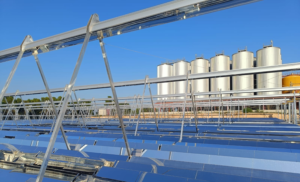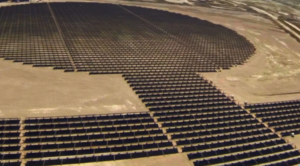

India: Rising Diesel Prices Boost Attractiveness of Solar Thermal
India’s government announced at the beginning of this year that it would gradually increase the price of diesel by INR 1 each month for the following 10 months. The government is aiming to bring retail prices in India on a par with international crude prices, in order to reduce the subsidy burden on the public budget. The chart shows that the industrial sector accounts for 8% of the country’s entire diesel consumption. The rising prices will certainly hurt the industries which have already paid much for electricity. Solar thermal technologies, however, can replace these expensive diesel systems: with an average of 300 clear sunny days per year, solar has a nature-given advantage over other energy sources.
Process heat is used in multiple sectors, such as in the food processing (for cleaning, drying and pasteurisation), machinery manufacturing or textile (for cleaning and drying) industry. Approximately 30 % of industrial processes require heat below 100°C and 57 % below 400°C, which offers an enormous potential for solar energy applications.
Siddharth Malik, CEO of Megawatt Solutions, which was founded in 2010 and manufactures concentrating solar power (CSP) systems, says that a country such as India can save nearly 200 litres of diesel per m2 of mirror area of the parabolic dish. Malik is convinced that with raising diesel prices, solar thermal will become the cheaper solution.
Amit Kumar from Taylormade Solar Solutions, which offers concentrating solutions based on Scheffler dishes, says that India’s climate favours solar energy use in high-temperature applications: “We can guarantee our client that a system will pay back in 2 years.” Taylormade has recently completed a solar process heat installation for a cable manufacturer. To vulcanising the cable core, it is dipped in water for between 18 and 24 hours at a constant temperature of 85°C. The CSP system has reduced the consumption of fuel oil during daytime.
Over the last 5 years, solar systems have already grown into a popular technology in India’s milk industry. Nowadays, virtually every new dairy is profiting from free solar energy. According to the Center for Study of Science, Technology and Policy (CSTEP), even if only 1,000 milk cooperatives in India were to use solar energy to offset some of their fossil fuel consumption in pasteurisation, it could save about 268 MWhth of energy consumption and 177 million kg of CO2 annually during the plants’ lifetime.
More information:
Center for Study of Science, Technology and Policy: http://www.cstep.in
Taylormade Solar Solutions: http://www.tss-india.com
Megawatt Solutions: http://www.megawattsolutions.in


